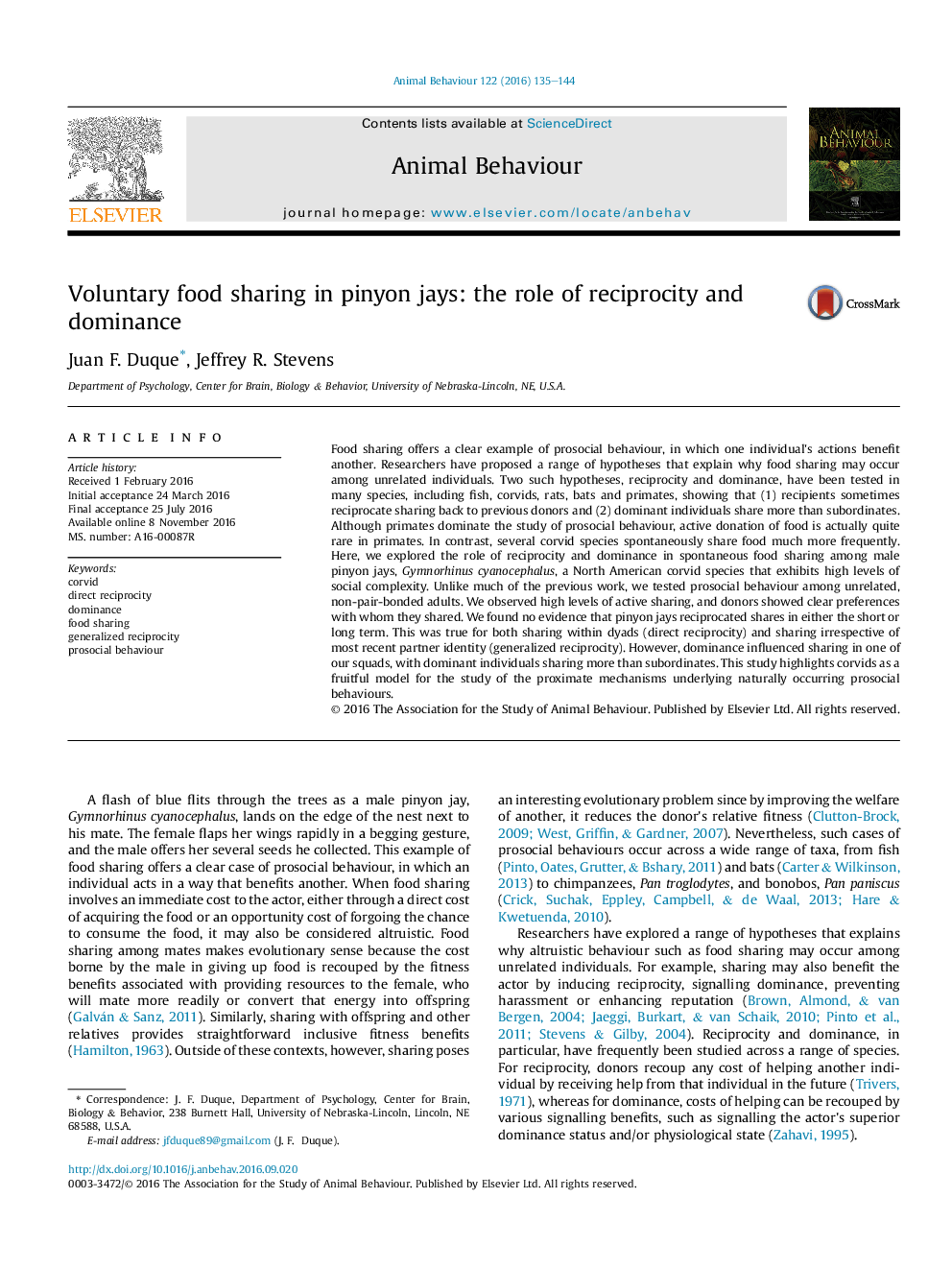| کد مقاله | کد نشریه | سال انتشار | مقاله انگلیسی | نسخه تمام متن |
|---|---|---|---|---|
| 5538380 | 1552206 | 2016 | 10 صفحه PDF | دانلود رایگان |
• Pinyon jays spontaneously shared food with others.
• Subjects varied in sharing frequency and in distribution of shares.
• We tested whether dominance or reciprocity explained patterns of sharing.
• Neither direct nor generalized reciprocity accounted for patterns of sharing.
• Dominant pinyon jays may be more likely to share.
Food sharing offers a clear example of prosocial behaviour, in which one individual's actions benefit another. Researchers have proposed a range of hypotheses that explain why food sharing may occur among unrelated individuals. Two such hypotheses, reciprocity and dominance, have been tested in many species, including fish, corvids, rats, bats and primates, showing that (1) recipients sometimes reciprocate sharing back to previous donors and (2) dominant individuals share more than subordinates. Although primates dominate the study of prosocial behaviour, active donation of food is actually quite rare in primates. In contrast, several corvid species spontaneously share food much more frequently. Here, we explored the role of reciprocity and dominance in spontaneous food sharing among male pinyon jays, Gymnorhinus cyanocephalus, a North American corvid species that exhibits high levels of social complexity. Unlike much of the previous work, we tested prosocial behaviour among unrelated, non-pair-bonded adults. We observed high levels of active sharing, and donors showed clear preferences with whom they shared. We found no evidence that pinyon jays reciprocated shares in either the short or long term. This was true for both sharing within dyads (direct reciprocity) and sharing irrespective of most recent partner identity (generalized reciprocity). However, dominance influenced sharing in one of our squads, with dominant individuals sharing more than subordinates. This study highlights corvids as a fruitful model for the study of the proximate mechanisms underlying naturally occurring prosocial behaviours.
Journal: Animal Behaviour - Volume 122, December 2016, Pages 135–144
